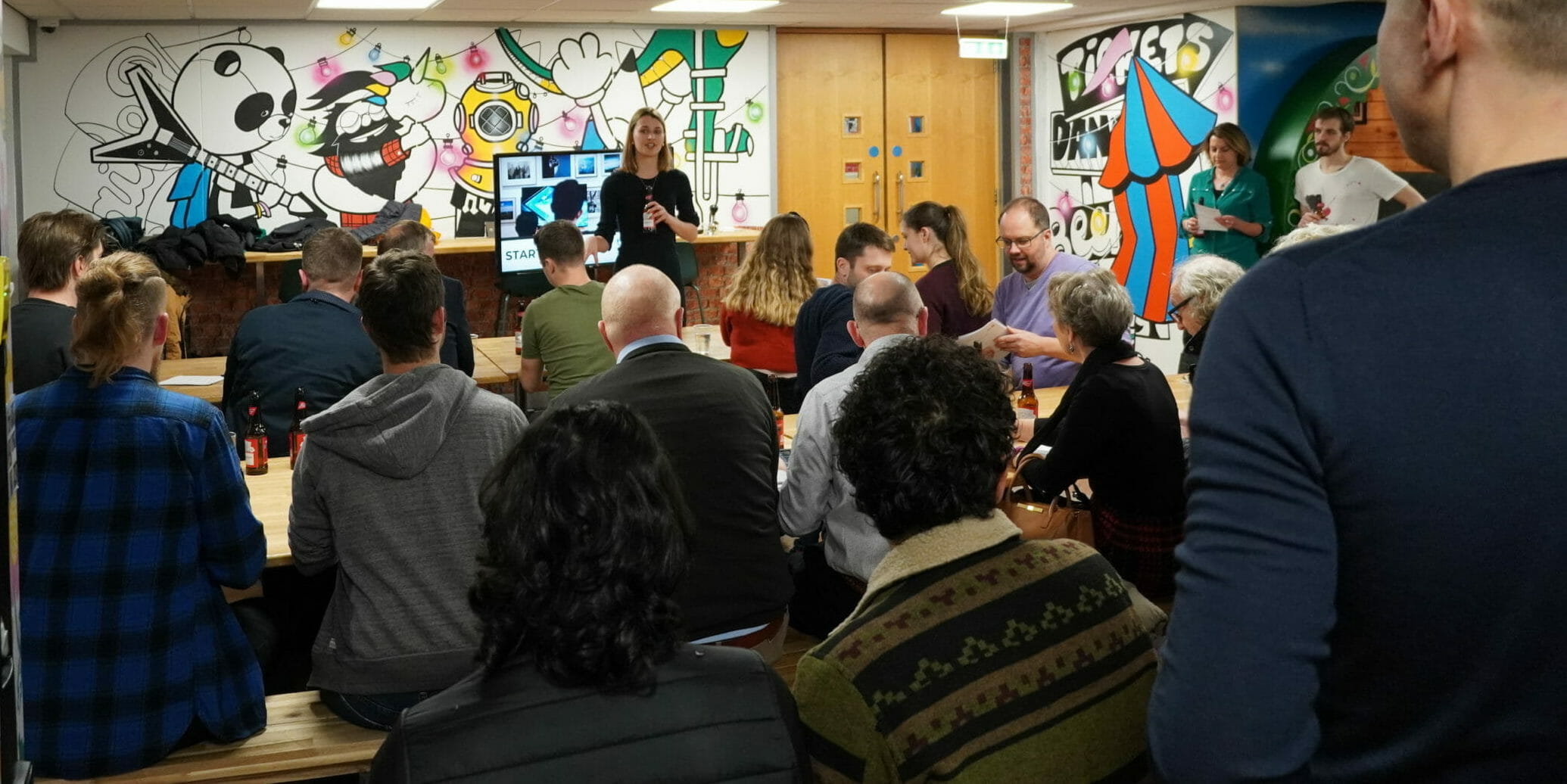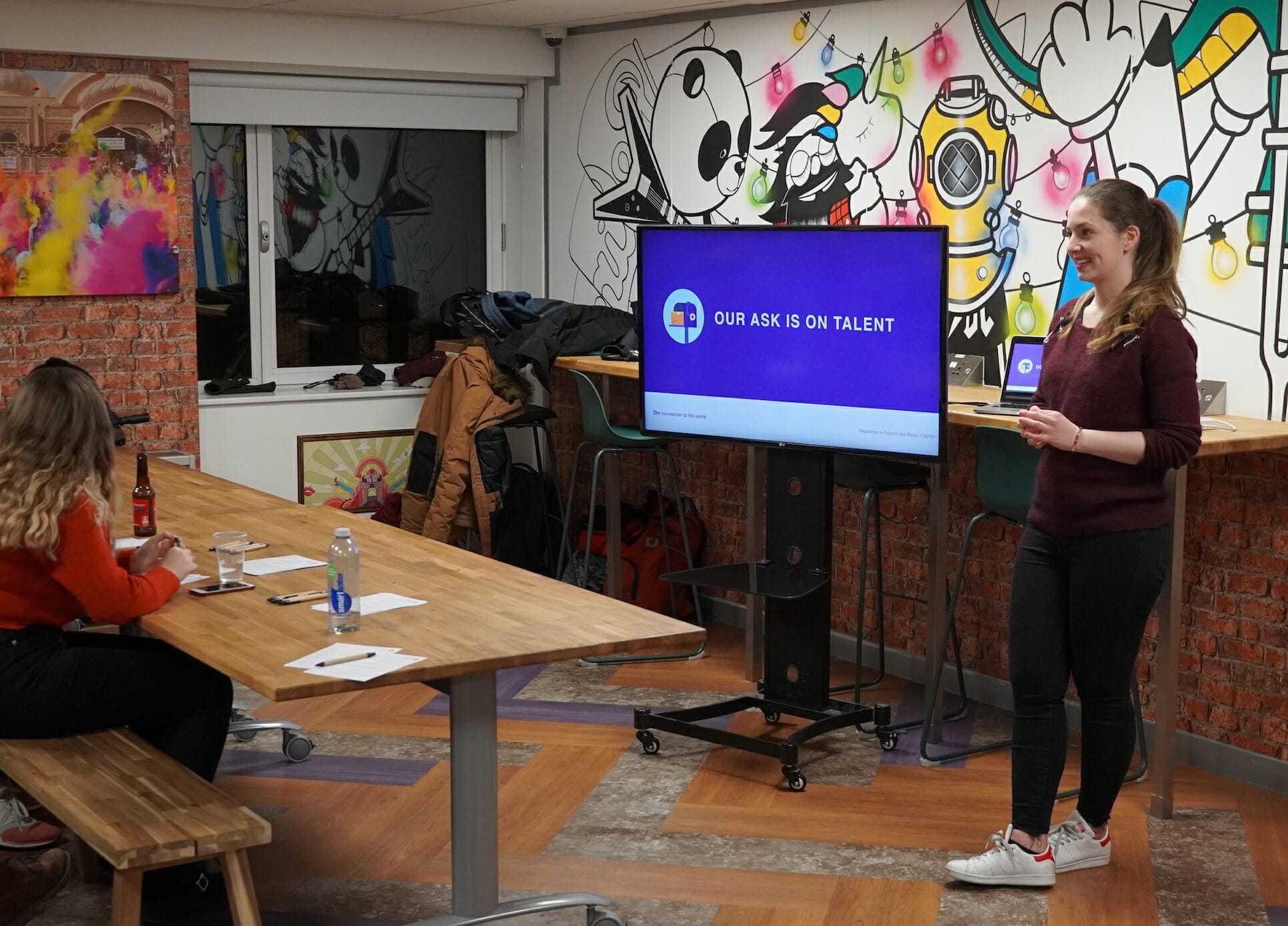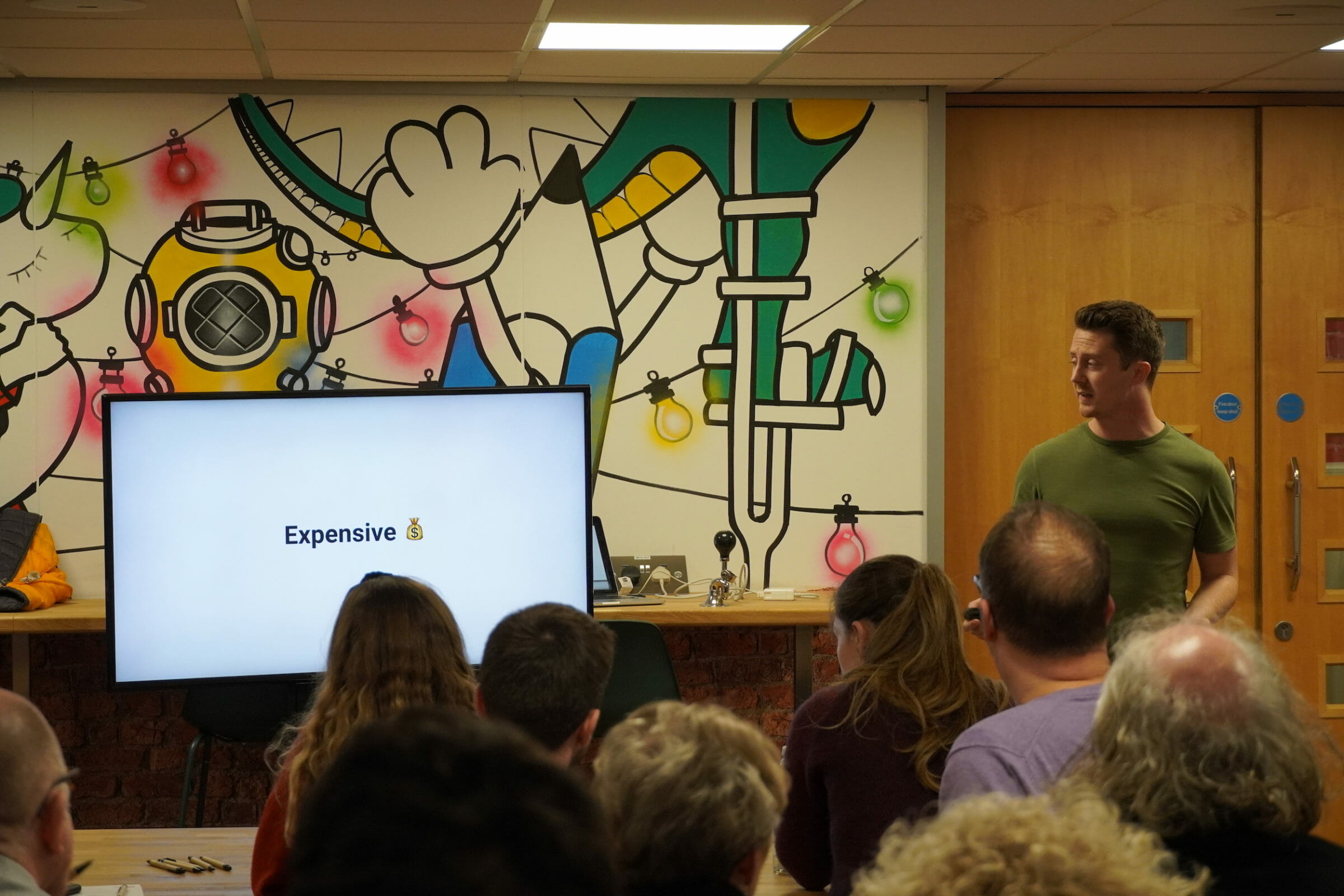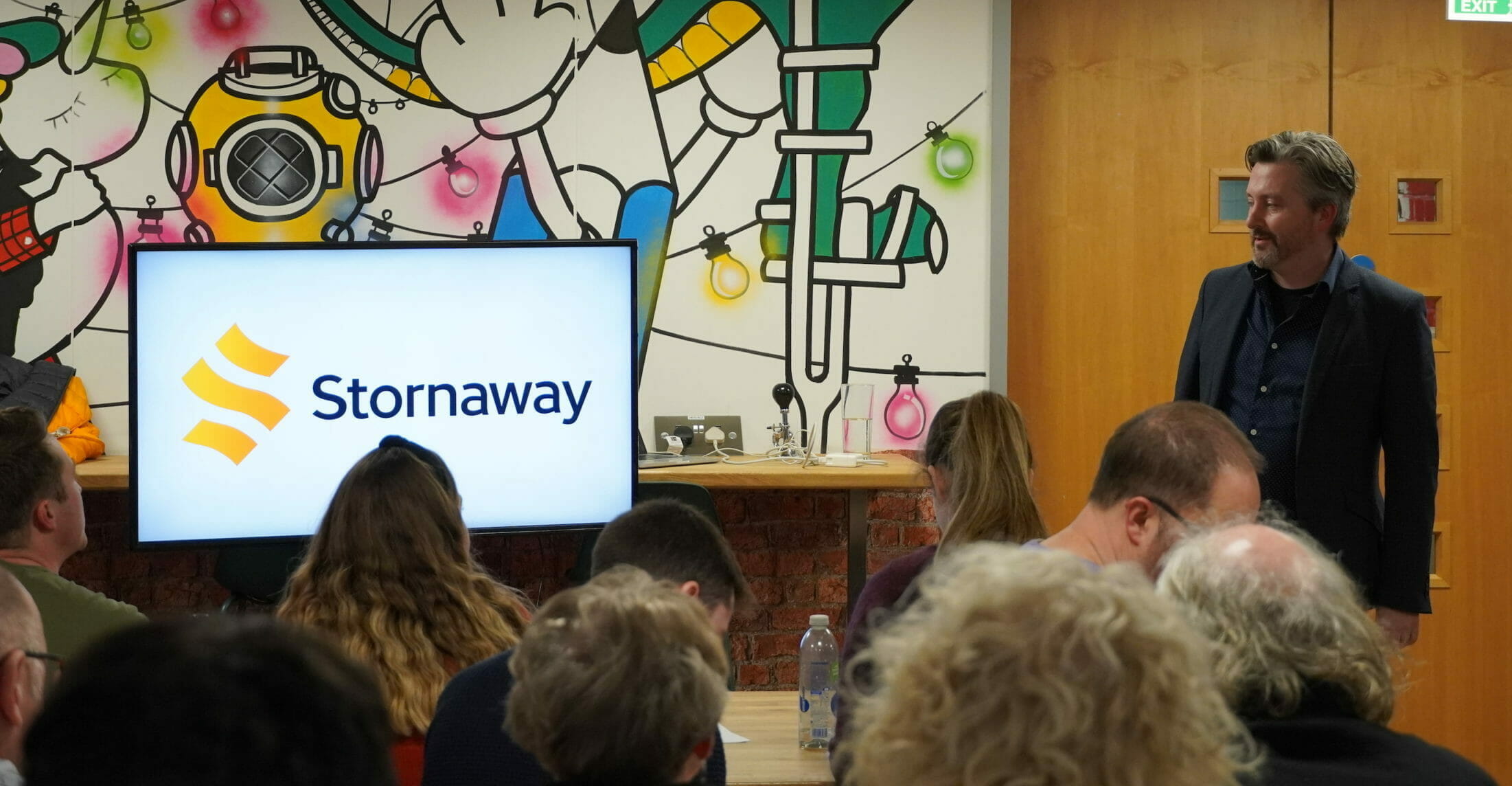Last week we hosted the first-ever Startup Kitchen event alongside TechSPARK at Bristol Desklodge. Three startups were invited to pitch their business for three minutes then ask their question/business problem to the audience.

The audience brainstormed with the entrepreneurs to solve their problem and signpost them to the solution. Here’s what we found out…
Dana from Tickitto AI

Dana Lattouf, CEO of Tickitto AI – a platform that puts the best travel-related experiences in one place. In late 2017, Dana was one of two people to receive the University of Bath’s Innovation Grant, allowing her to turn away from a career in Technology and Strategy consulting and plunge into entrepreneurship. In 2019, NatWest Business recognised Tickitto as one of the Top 10 businesses in the Southwest of England and Wales.
Question: How can we make ourselves more appealing to new hires and create a culture that favours employee retention?
Notes from the audience:
- If you are hiring developers, having a great tech stack is a big plus.
- Demonstrate the product milestones you have achieved and your product roadmap, that will allow new hires to see your vision and show what progress you have made.
- Articulate the vision of your business and the long term aims of the brand rather than the business. People identify with a brand.
- Offer job perks that are better than your competition: Working remotely, flexible working, valuing work productivity over hours put into your business, paternity leave as well as maternity leave.
- Be open and explicit about the culture you are creating which is all about trust. An example of this would be unlimited holidays or ‘minimum holidays’ employees have to take in a year.
- For designers, it’s rare to see a project actually come into fruition. Allow your designers to see them go live and be part of that launch.
Ash from Yena

Ash Phillips, founder of Yena. Born and raised just outside of Bristol, Ash started his first business after dropping out of uni. In wanting to find like-minded peers, Ash ran a small meetup for just a few people in Bristol which became Yena. Ash & co-founder Abby now run Yena as a platform for startups, providing business benefits via a small, monthly subscription; while still running free meetups – now for over 4,000 people across 21 cities and 9 countries. This, though, is just the beginning. Yena has grand plans & challenges ahead…
Question: In talking to potential investors, many have previously misunderstood where we want to take Yena due to preconceived ideas of what we already are/have been in the past. Investors/VCs say they love our story but focusing on that too much seems to distract from the big vision. How can we make it clear that our journey to date is ‘substantial traction’ on a much larger idea while maintaining the story they love to hear?
Notes from the audience:
- Can you create an early prototype of what you are looking to create with the funds?
- Is there a collaboration you can do with another company or even the government which would mean you don’t need to look for investment?
- Crowdfunding vs Private investment?
- Have you looked at an innovate grant?
- Could you introduce a social franchising model?
Rupert from Stornaway

Rupert Howe is the co-founder of Stornaway, a new platform that allows producers to create interactive films quickly and easily, without coding. Rupert’s background is in the convergence of TV, film and technology, and he has been an interactive and web video pioneer. As a consultant, he led digital transformation projects for blue-chip media clients including the BBC.
Question: We have a chicken and egg strategy problem that we’ve thought about a lot:
To raise investment, we need to prove our huge market potential.
But because the interactive film market is at an early stage, it may take a while to grow to a point where we can prove it sufficiently.
So in order to last long enough to prove it, we need investment.
But to raise investment, we need to prove our market potential…
We wondered if anyone knew any good examples of businesses that have wrestled with this kind of problem.
Notes from the audience:
- Can you use the example of the VR market which appeared very quickly?
- Is there a different angle you can pitch your product to make some money before seeking investment? For example, you could use your product to make corporate training videos which is niche but would work quickly and get you some early revenue.
- Instead of niching your product, could you diversify to other mediums such as TV and mobile rather than just film?
- What about using your product to create content marketing for companies?
- Could you become an agency that uses your product to create interactive videos for clients? An example would be basecamp which was a spin-off from a web design firm
- Trust amongst the big players in your industry is hard to get – could you maybe partner with one of them?